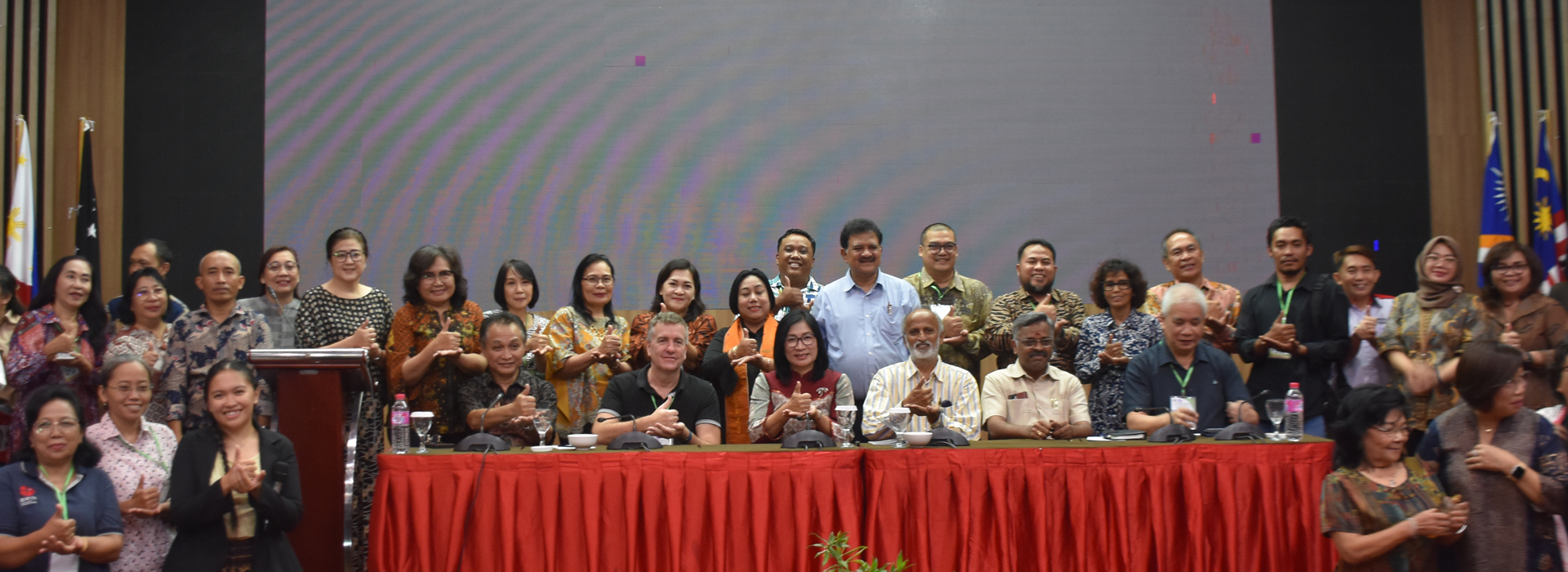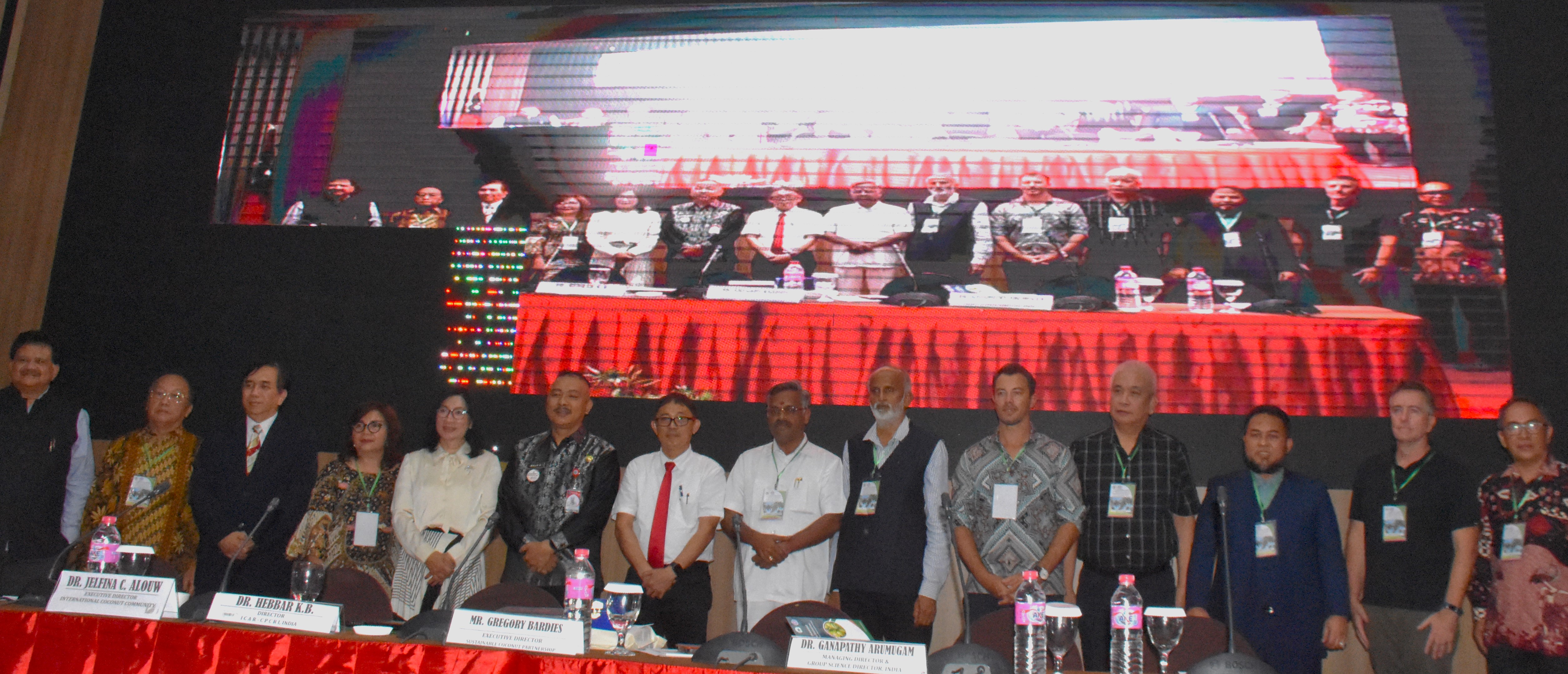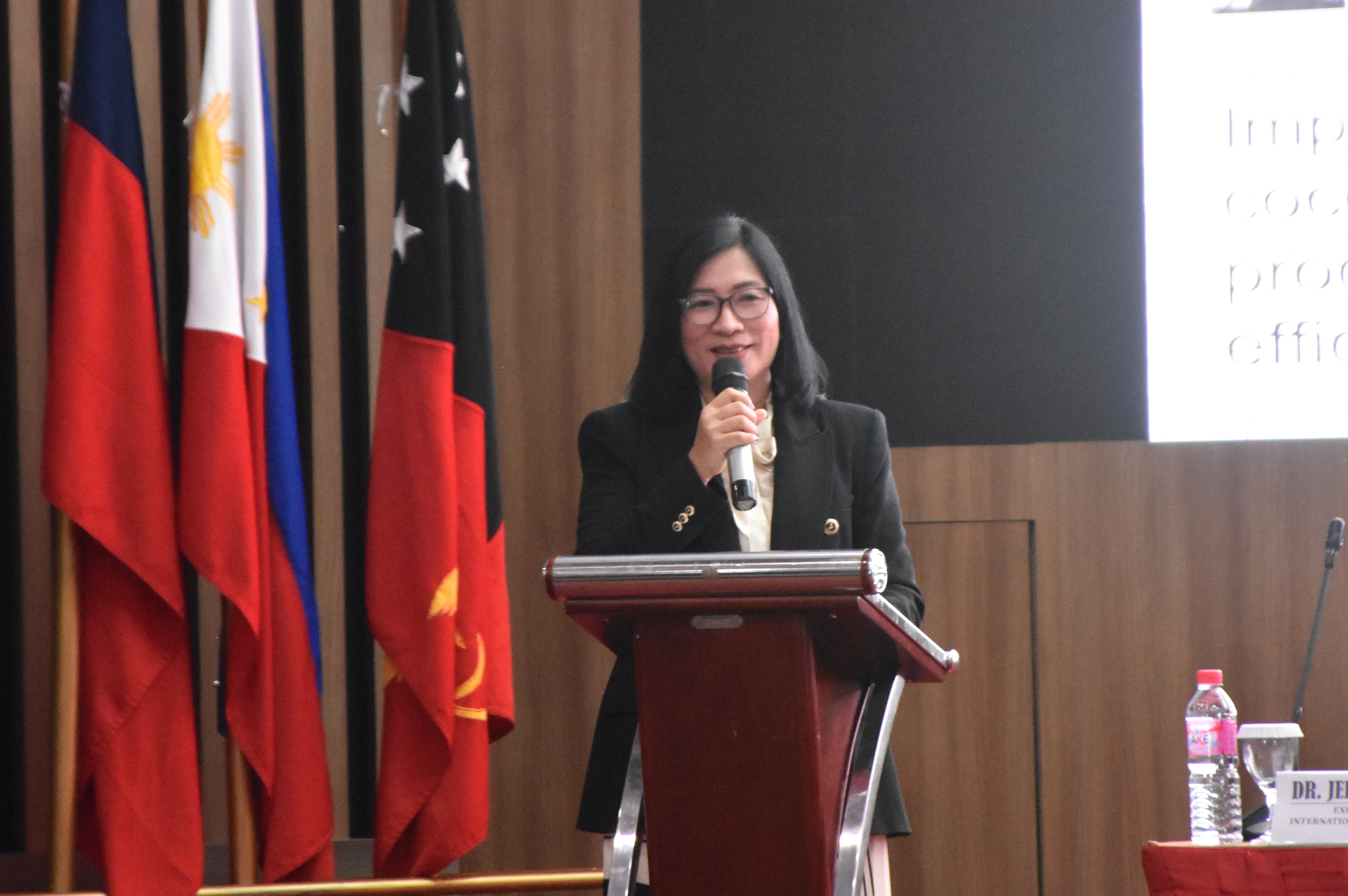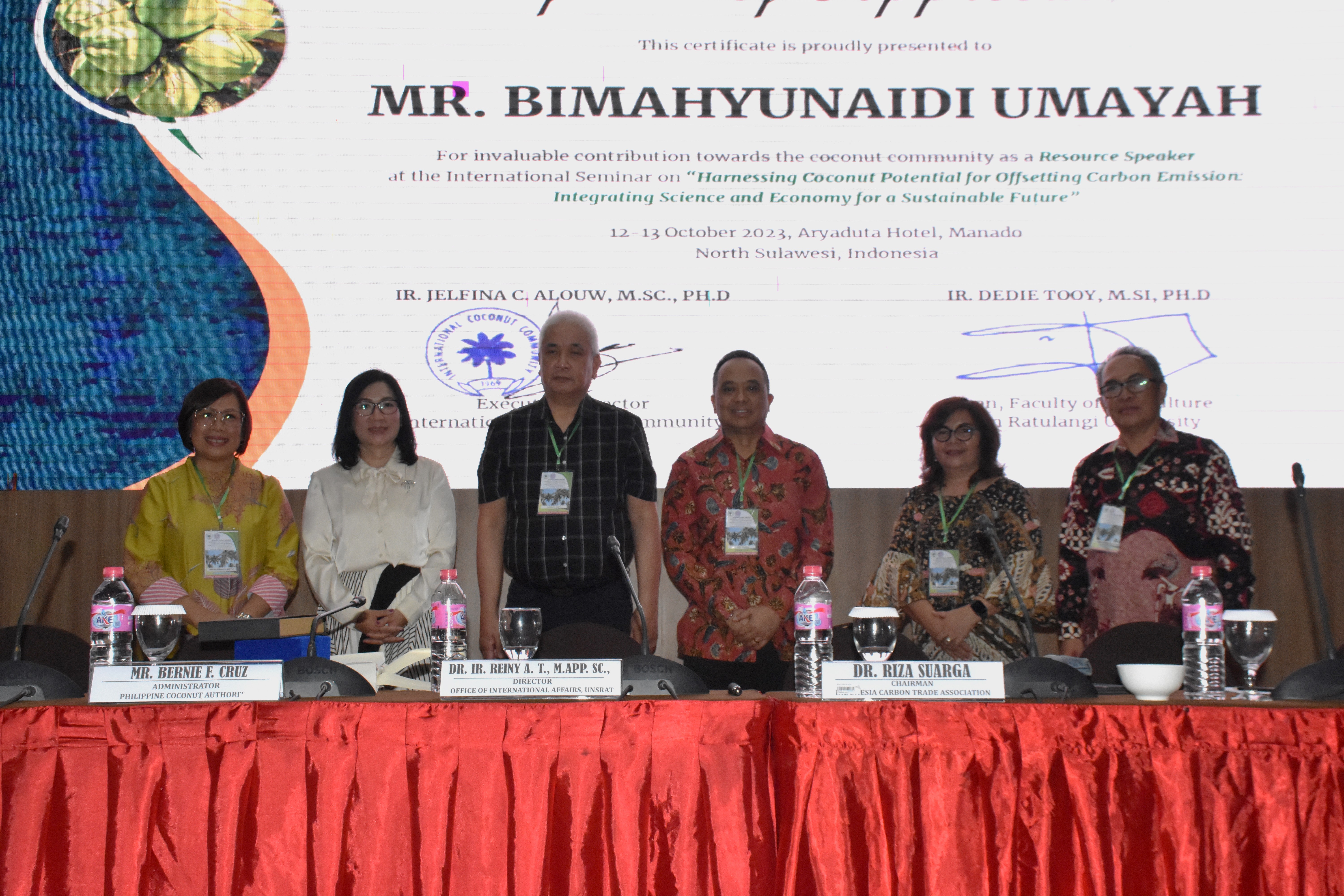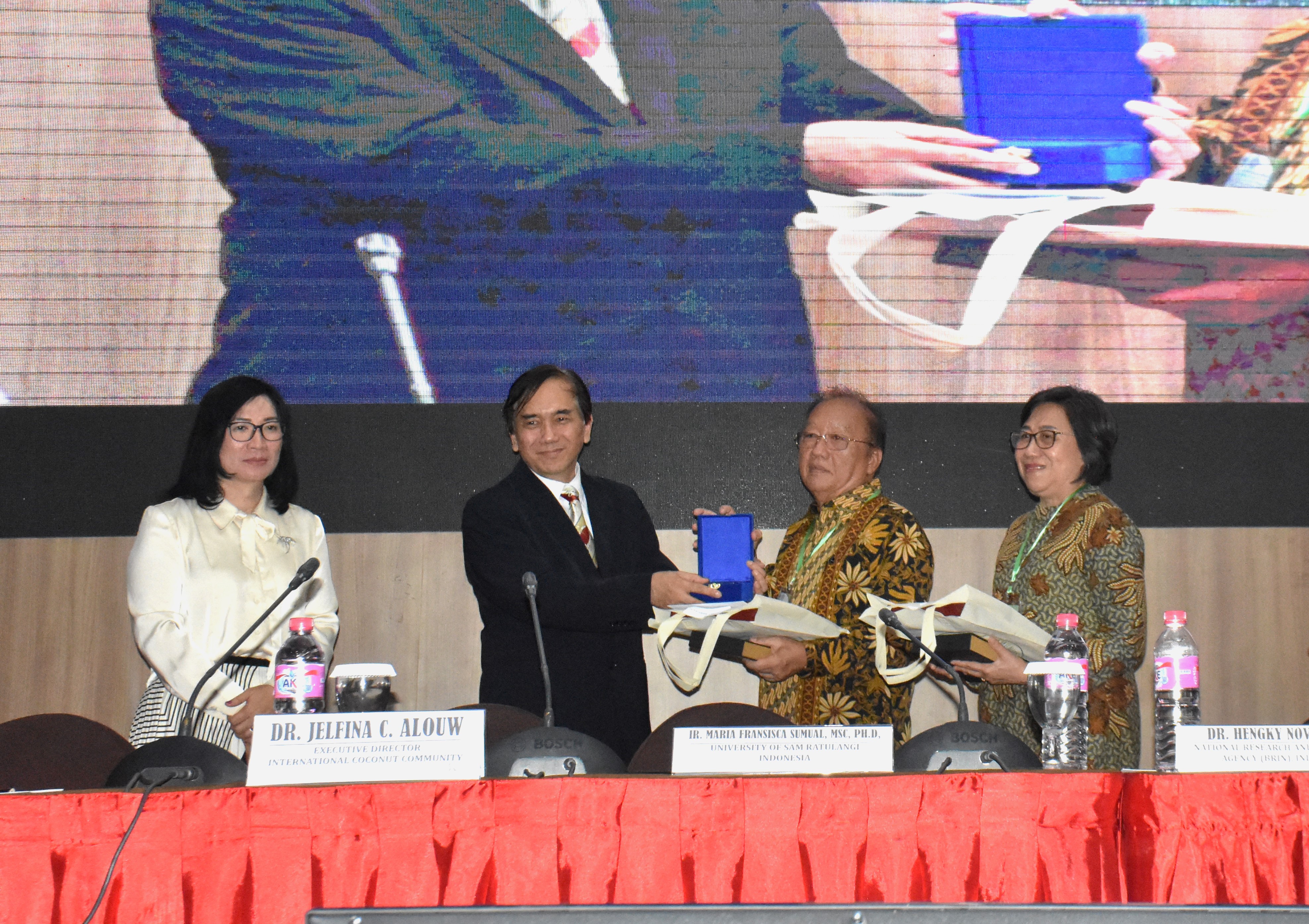To respond to the challenges of global climate change and implement a sustainable development agenda, the International Coconut Community, in collaboration with Sam Ratulangi University (UNSRAT), Manado, Indonesia conducted the International Seminar on "Harnessing Coconut Potential for Offsetting Carbon Emissions: Integrating Science and Economy for a Sustainable Future". The seminar was held on 12 and 13 October 2023 in Aryaduta Hotel, Manado, Indonesia.
Well-known experts from five countries gathered to share their latest research and experience and to focus attention on harnessing the potential of coconut in reducing carbon emissions.
The experts participated from India (Dr. Hebbar K. B., Director of ICAR-Central Plantation Crops Research Institute, Dr. Ganapathy Arumugam, Managing Director of Enhanced Biofuels And Technologies India, and Mr. Saibal K. De, CEO of Deejay Group), Philippines (Mr. Bernie F. Cruz, Administrator of Philippine Coconut Authority and Mr. Matthew Grecsek, CEO of Globe-Eco), France (Mr. Grégory Bardies, Executive Director of Sustainable Coconut Partnership), USA (Dr. Sarah C. Sellars from Dakota State University), and Indonesia (Dr. Riza Suarga, Chairman of Indonesia Carbon Trade Association, Mr. Bimahyunaidi Umayah, Deputy Director of the Financial Services Authority, Dr. Hengky Novarianto, Senior Scientist of Indonesia National Research Innovation Agency, Mr. Asep J. Mulyana, CEO of PT Tom Cococha Indonesia, Mrs. Dessi Yuliana, Director of CarbonX, Mr. Isa A. Djohari, VP Research and Development of Indonesia Commodity and Derivatives Exchange, and Dr. Johny S. Tasirin, Lecturer of Sam Ratulangi University). Some experts from Sam Ratulangi University also joined as chairs of the sessions and share their expertise and they are Dr. Reiny A. Tumbol, Dr. Maria F. Sumual, Prof. Robert Molenaar, Dr. Wiske Ch. Rotinsulu.
The seminar conducted in five sessions. The first session was on "Policy and Regulation of Energy Transition and Pathway to Net Zero". This topic focused on the steps taken by policymakers to reduce carbon emissions and the opportunities that scientists and businesses can develop. Besides, stressed upon the standardizing of the methodology available for the carbon emission.
The second session was on "Carbon Sequestration and Carbon Sink in Agriculture Including Coconut and Its Implication to Net Zero". This topic focuses on the potential for carbon absorption by coconut plants, effective steps that can be taken by activists in the coconut sector, and the implication of intercropping systems on carbon reduction.
The superior coconut varieties as a result of the research are presented in the third session "Empowering Communities for Climate Action and Sustaining High Coconut Productivity: The Role of Education and Research & Development". The benefits and qualities of the coconut varieties were presented which can be encouraged to distributed to the farming community for planting in their area and to increase their income per unit area.
Industry experts explained the steps taken to reduce carbon in the fourth session "Incentivizing Carbon Capture and Making & Offsetting Carbon Credits: Economic Instruments and Implementation Strategies". Carbon credit trading schemes are also explained in this topic, one of which is the utilization of coconut shells to make charcoal and briquette, as well as the distillation process on carbonization of charcoal, which can produce liquid smoke or smoke vinegar.
The last session was on "Sustainable Practices in Reducing Carbon Footprint, Community Engagement, Challenges, Opportunities and Future Directions". This topic focussed on how to educate the communities to stick with the commitment to reducing carbon emissions through the implementation of sustainable farming practices, the challenges they face, as well as various opportunities for coconut waste utilization.
There were in-depth discussion after each session and queries were answered by the speakers.
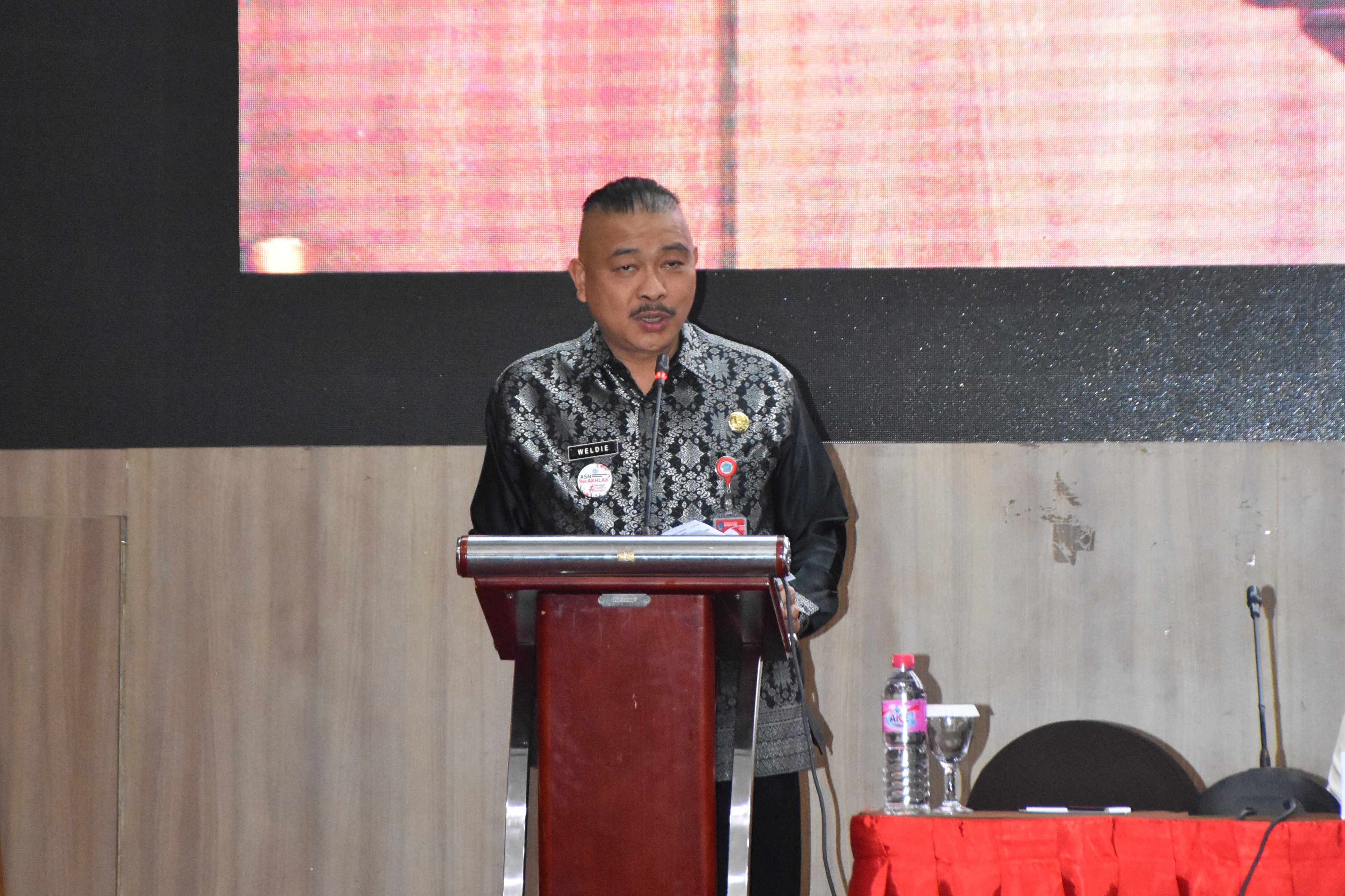
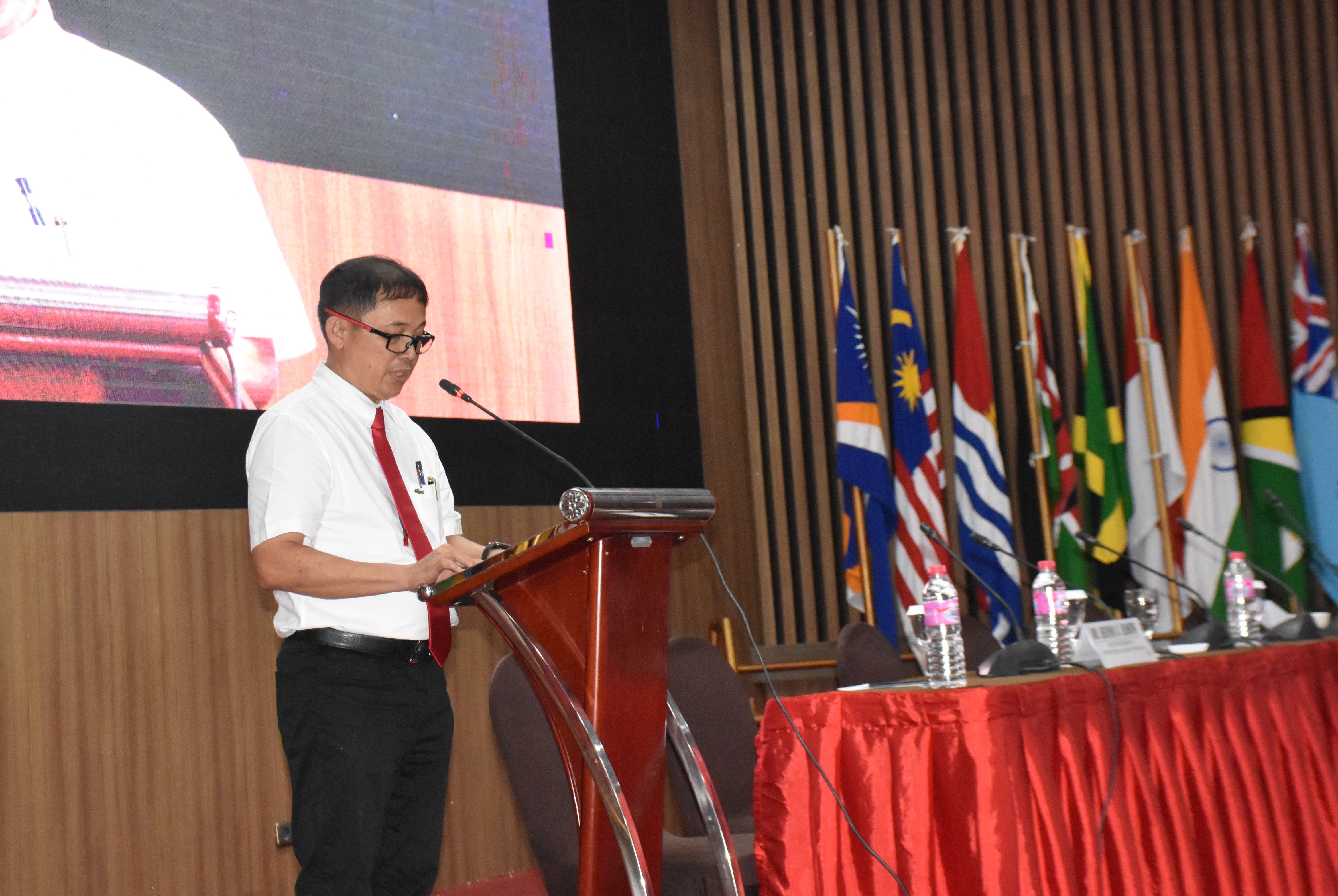
Formal inauguration of the seminar held on 12th October with the remarks by Dr. Jelfina C. Alouw (Executive Director of the International Coconut Community), along with Prof. Oktovian B. A. Sompie (Rector of Sam Ratulangi University), Mr. Olly Dondokambey (Governor of North Sulawesi), represented by Mr. Weldie Poli (Head of the Goods and Services Procurement Bureau, Government of North Sulawesi), and Dr. Dedie Tooy (Dean of the Faculty of Agriculture, Sam Ratulangi University.
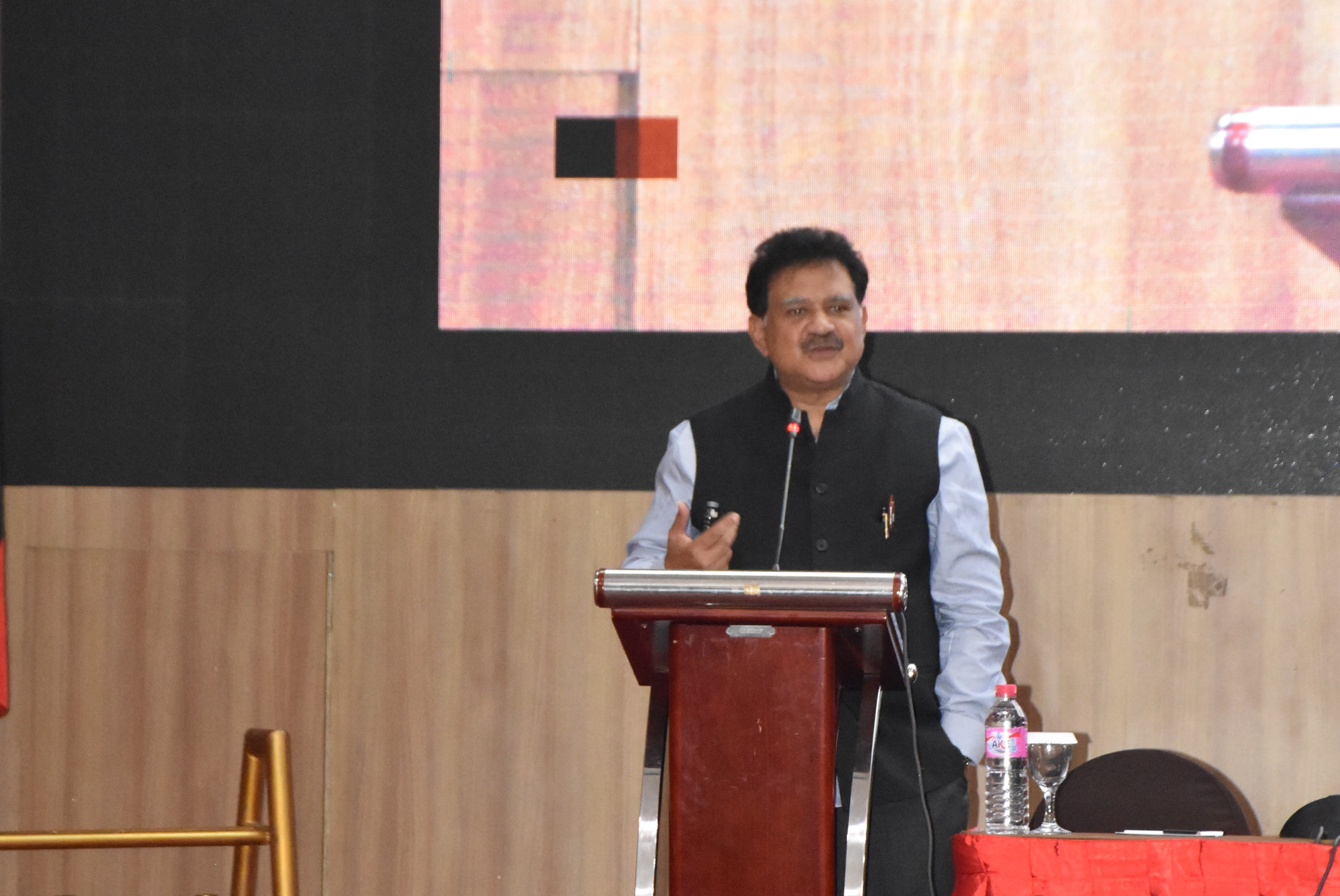
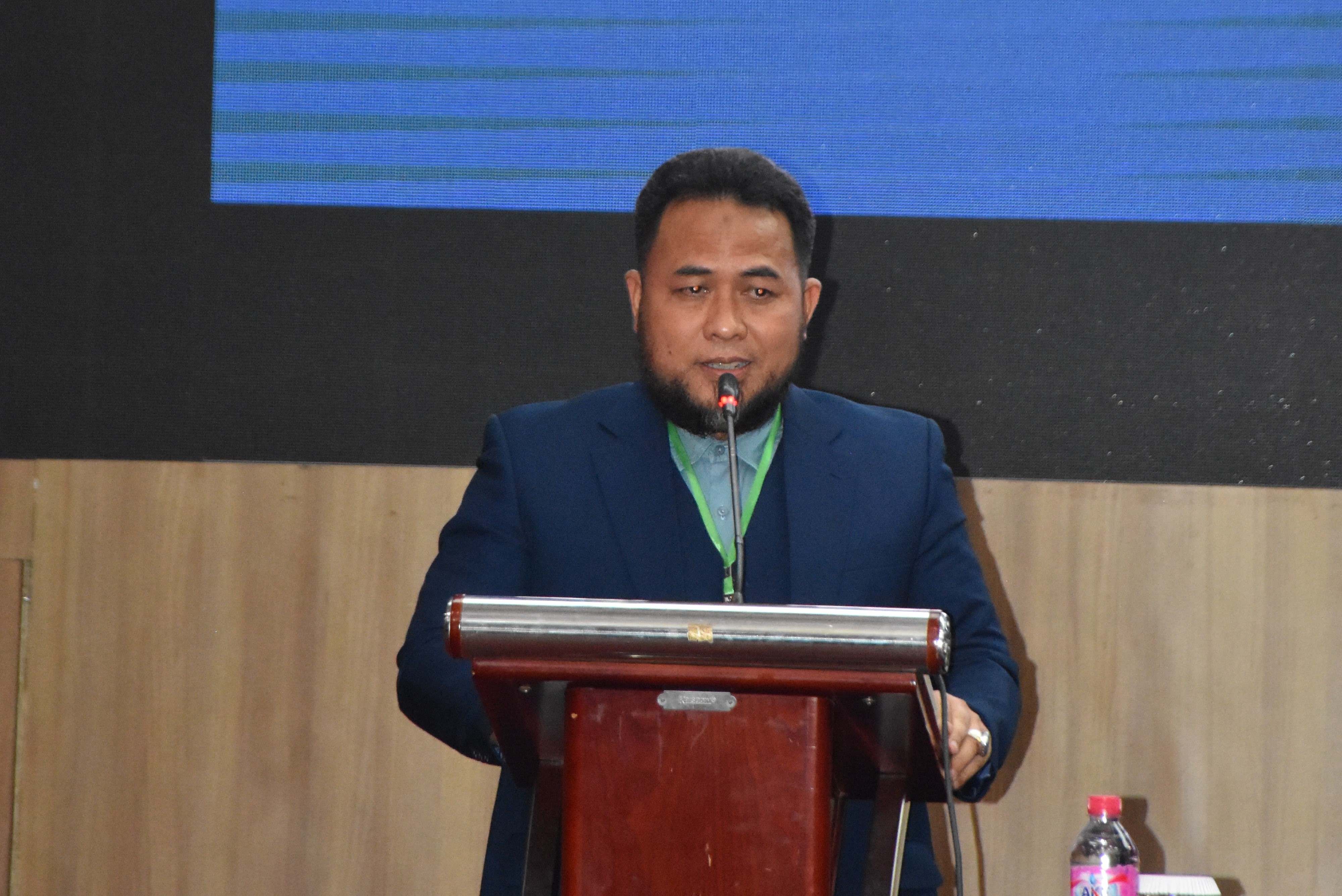
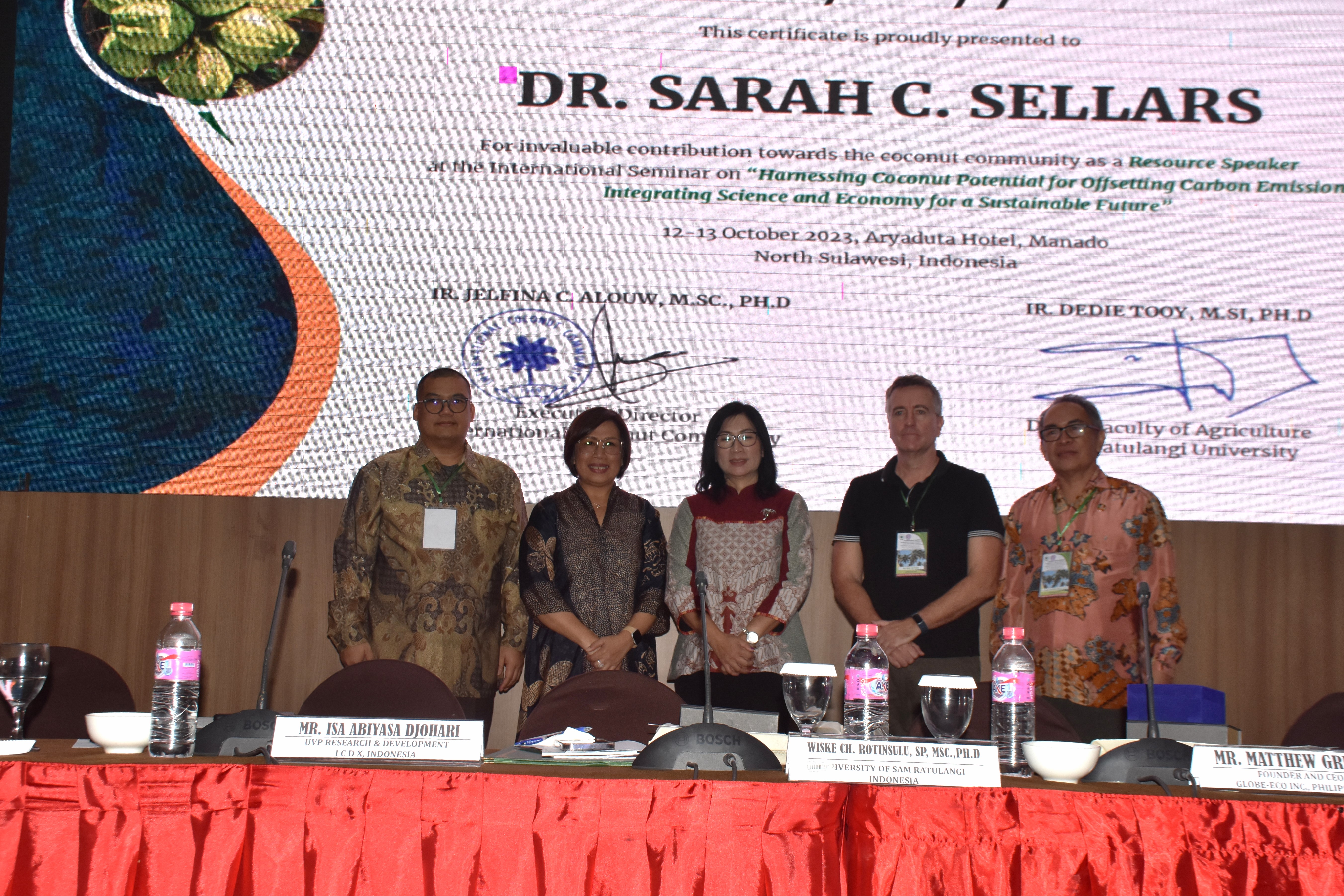
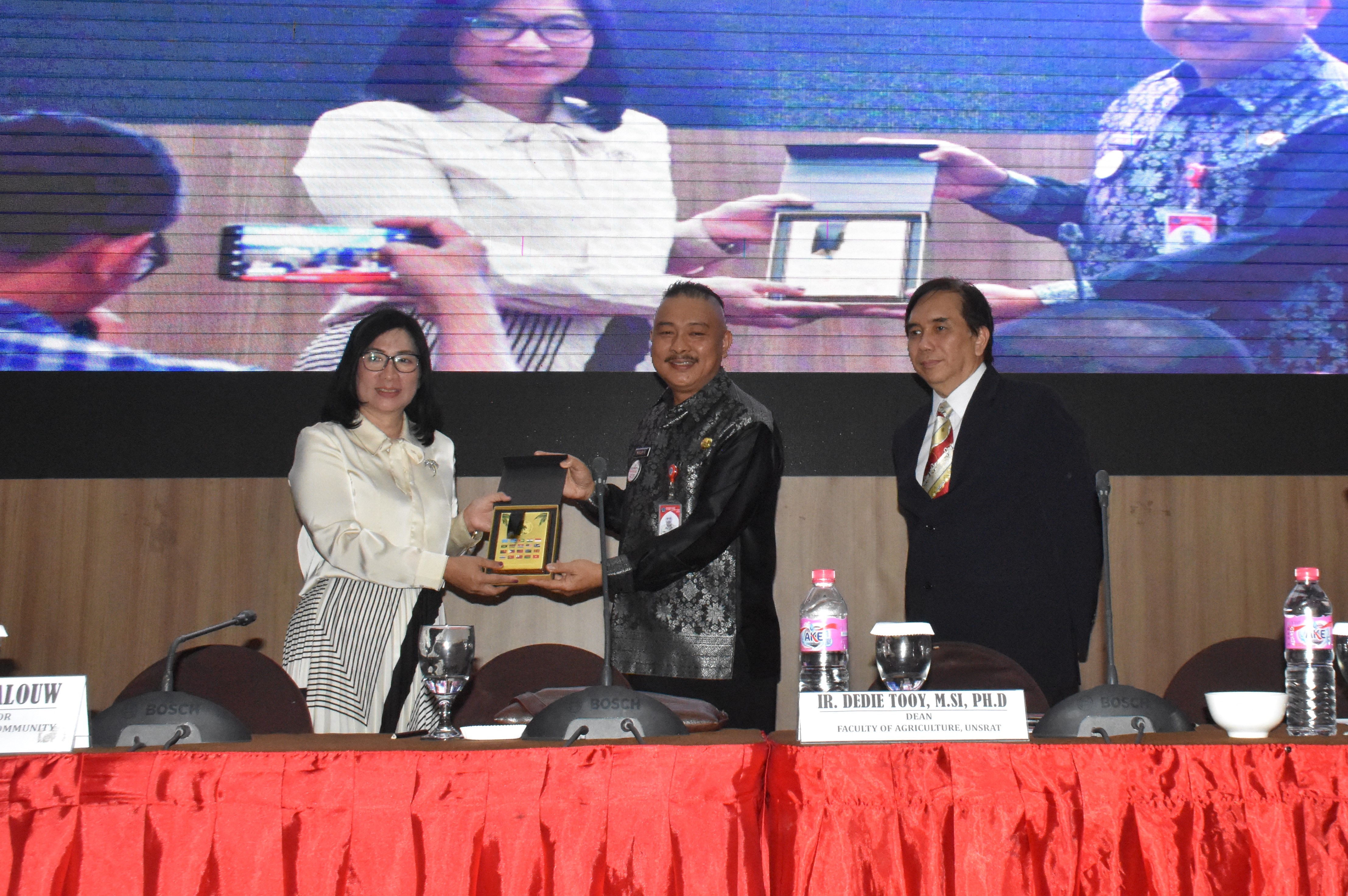
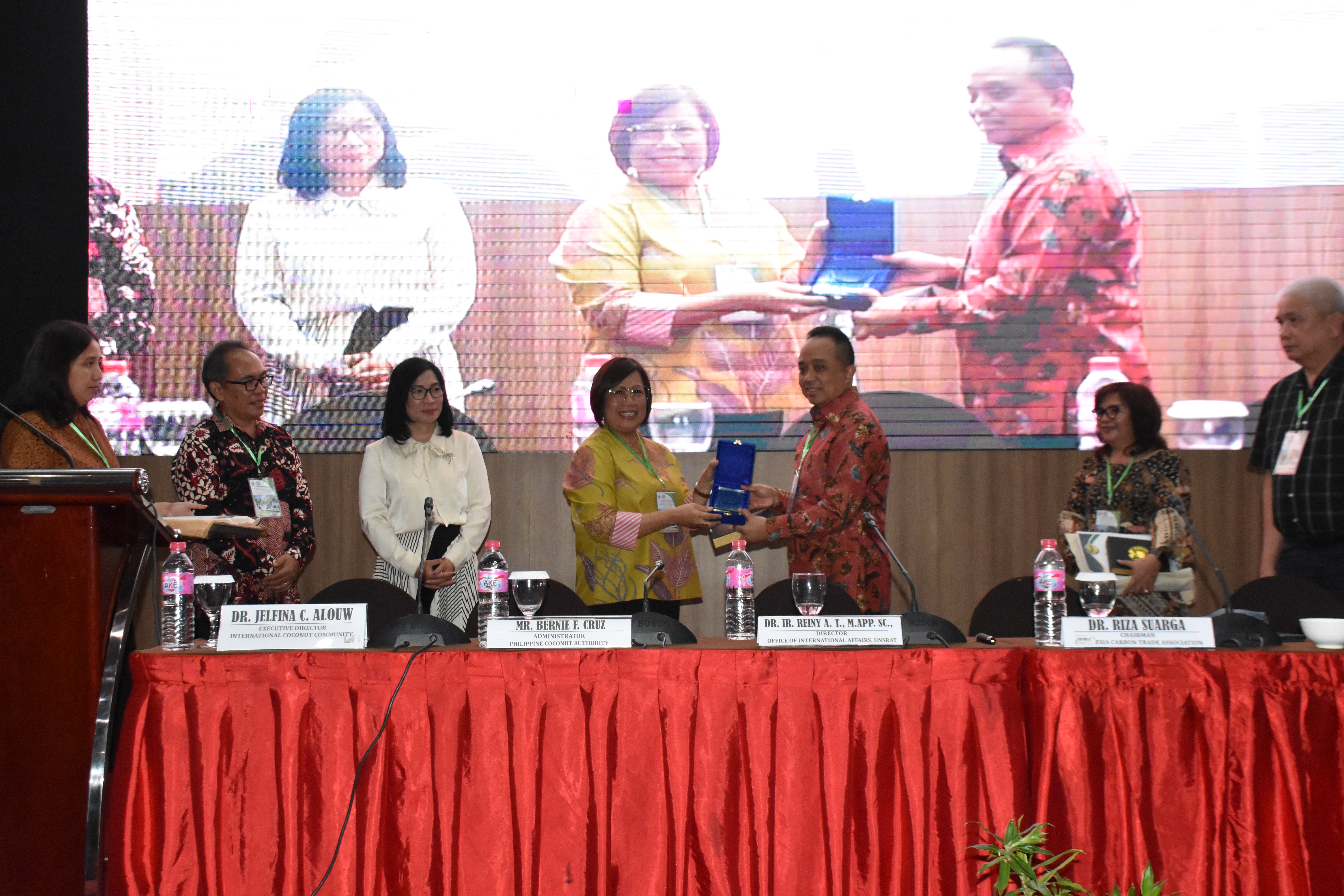
In her address Dr. jelfina stressed on the identification of research gaps in harmonizing the standard methodology of measurement of carbon emission and to address the challenges of the sector. She presented the potency of coconut for offsetting carbon emission. To overcome the challenges one has to go for selection of improved coconut variety, maintain the conservation and adopt the sustainable farming practices. In her closing remarks she mentioned that this is the beginning of the effort of ICC and with the collaboration of policymakers, scientists, economists, and environmental experts more dialogues and researches can be carried out for offsetting carbon emission toward the sustainable development of the coconut sector.
The recommendations and way forward crafted from the two days seminar was presented. This seminar will provide a strong basis for everyone to utilize the potential of coconut to reduce carbon emissions. It is hoped that the ideas and experiences shared during the seminar that can play an important role in creating a greener and more sustainable future, as well as concrete solutions for overcoming global climate change.

